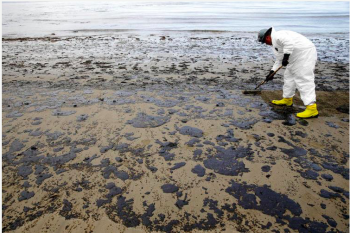Despite pause, new laws still needed to protect our coast - The Post and Courier
The Trump administration’s decision to put on hold the president’s legally fraught executive order to open more U.S. waters to oil drilling is a welcome one. It’s also politically expedient (especially in coastal states) for the president to take offshore drilling off the table in advance of the 2020 elections.
But the larger battle is far from over, and it’s conceivable the Department of Interior’s Bureau of Ocean Energy Management could still issue seismic surveying permits for the mid-Atlantic region while the marginally separate question of offshore drilling moves from the courts to Congress.
So it will be important for Rep. Joe Cunningham, D-S.C., to keep tooting his horn and other members of South Carolina’s congressional delegation to keep pushing a bill that declaratively puts Atlantic federal waters off limits. State lawmakers also need to pass a law — not just a budget proviso — forbidding onshore infrastructure to support offshore exploration. And, of course, it will be important for the public to continue to express its opposition to what is a dirty, unwanted and unneeded industry.
Offshore drilling absolutely should be part of the conversation in the upcoming presidential election. And if drilling is off the table — at least temporarily — seismic testing should be too.
Consider that U.S. oil production hit a record high of about 4 billion barrels last year, and the market effects of sanctions on Iranian oil have been negligible so far. Plus, the offshore oil industry remains primarily focused on the Gulf of Mexico.
Whether America has become “energy dominant” is arguable, but it has become a net exporter of crude oil and is very close to achieving energy independence. Energy Secretary Rick Perry has projected that the United States will be a net energy exporter by 2022.
At the crux of the Trump administration’s decision to halt offshore leasing is a March 30 ruling by U.S. District Judge Sharon Gleason of Alaska that said President Trump’s 2017 executive order to open up Arctic and Atlantic waters for oil leasing is “unlawful, as it exceeded the president’s authority.” That means the Obama-era ban remains in effect for now.
The administration also faces other lawsuits filed by attorneys general in coastal states, including South Carolina, and environmental groups that could further hamstring offshore leasing. The New York Times reported that government has now lost about 40 drilling-related cases in federal courts.
Bloomberg reported that the administration would hold off on its efforts to expand offshore drilling until after the 2020 elections, in part because it might hurt the prospects of Republican candidates in the Southeast. That breathing room could provide federal and state lawmakers with enough time to pass laws that would effectively block efforts to open up Atlantic, Pacific and Arctic waters.
Rep. Cunningham applauded the pause and rightly cautioned against complacency.
“We need legislation to permanently ban offshore oil and gas drilling and make sure that no administration can put our communities at risk,” he said.
Based on Judge Gleason’s ruling, it may well take an act of Congress to undo the Obama-era offshore ban, which was invoked under the Outer Continental Shelf Lands Act. That is unlikely given overwhelming bipartisan opposition to the expansion of offshore drilling. But if a federal appeals court strikes down Judge Gleason’s decision, the administration could put Atlantic waters back into play again.
Don’t give up the fight, and let your elected representatives know you still stand against offshore oil.
